|
Cover Story
The Solar Alternative
About 37% of Bangladesh's population is connected to the electricity grid, meaning the majority of countrymen do not have access to a formal electricity connection. But life must go on. Solar energy is considered to be an alternative as it generates power independently in the off-grid areas. It is also cleaner compared to fossil fuel fired power supplied by the grid. According to the Infrastructure Development Company (IDCOL), as of 2011, solar energy has given approximately 10 million rural people access to power; enabling them to explore various modern livelihood options. Dr. Rumi Shammin (Assistant Professor of Environmental Sciences at Oberlin College, Ohio, USA) and I visited rural areas in Khulna to see how solar energy had changed the lives of village people.
...............................................................................................................
Dr. A. K. Enamul Haque
We had set out early on 28 March 2012. To find people using solar energy, we needed to travel further than the reach of the national power grid, so, our destinations were Batiaghata and Dacope, both in the Khulna district. We wanted to understand who uses solar power in rural Bangladesh, and how solar energy benefits them. Despite it being almost three times as costly as the next best alternative (lantern), solar energy is changing the lives of thousands. We wanted to see how people are adopting such instances of technological innovation and what do they do with the new found 'light' in their homes and businesses. Frankly, we were surprised by the ingenuity of village folk in using solar energy to change their life and raise their income.
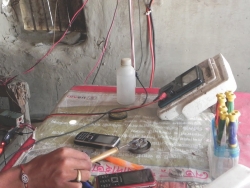 It starts with basic indoor lighting, and since solar energy became available, rural activities no longer stop with the sunset. We met a lady who, after being divorced by her husband, has taken up teaching school students privately at her home. She lives with her mother and brother, but one batch wasn't allowing her to earn enough. Now she teaches two batches, one in daylight, and one at night using solar lights. Her income has doubled. Even in parts that have grid electricity, solar powered power systems provide backup power, filling in for power cuts. We had tea at a roadside tea stall which was using solar power. When asked, the stall keeper said he preferred to use a legal solar system, instead of using an illegal stolen connection which he could lose at any moment. It starts with basic indoor lighting, and since solar energy became available, rural activities no longer stop with the sunset. We met a lady who, after being divorced by her husband, has taken up teaching school students privately at her home. She lives with her mother and brother, but one batch wasn't allowing her to earn enough. Now she teaches two batches, one in daylight, and one at night using solar lights. Her income has doubled. Even in parts that have grid electricity, solar powered power systems provide backup power, filling in for power cuts. We had tea at a roadside tea stall which was using solar power. When asked, the stall keeper said he preferred to use a legal solar system, instead of using an illegal stolen connection which he could lose at any moment.
Solar energy has changed entertainment options as well. In a privately run game centre behind a tea stall, people were paying 8 taka per game to play 'karam' at night, with the room lit up by a solar powered light bulb. Although we didn't have the opportunity to see one, we heard of irrigation pumps being run by solar power as well.
Once we had left the poles of the power grid more than 20 kms behind, we were surprised to find that life was abuzz in villages, even at night. With almost every person in the country having access to mobile phones, there is a need to recharge batteries. We found mobile phone charging shops that charge by the hour to charge phones! The person running it also knew some light mobile engineering and operates a solar-powered mobile repair shop as well. Small businesses also exist where people can make phone calls from, at only 1 taka per call. These small businesses need to charge their phones constantly, and are able to do so using solar power.
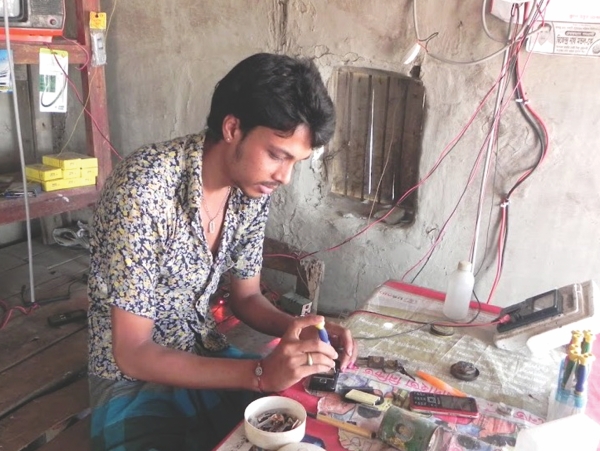
Unfortunately, solar power is not being used where it should be, in the cities. The tall buildings of Dhaka have tremendous potential of generating electricity using solar panels, a potential that has not been tapped. Since formal electricity is being sold at subsidized prices (costing the government billions in fuel costs), there is no natural incentive to use solar power at homes where grid energy exists. People would rather use diesel based backup power instead of solar, since solar power is still comparatively more expensive. But things need to change slowly over time, and we need policy to change people's motivations, starting with a mandatory requirement of generating a portion of all consumed electricity on site using solar power. This will reduce pressure on grid electricity, reduce power cuts, improve environmental conditions, and free up electricity which can be supplied to spots where poles and wires exist without any actual supply. In the long run, such a policy will also motivate estate developers and apartment builders to design the surface area of buildings in a way that is greener and more conducive to capturing sunlight, enabling buildings to generate as much solar power as possible.
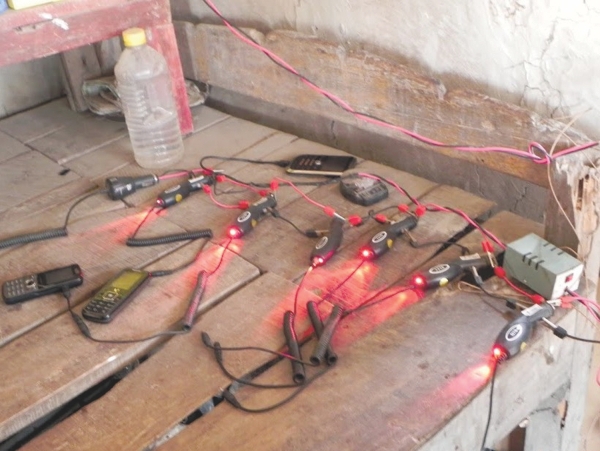
A solar home system would cost between 10,000 taka to 50,000 taka depending on its capacity and what really bothered me is that rural people were borrowing money to pay for this light source even though they perhaps never spent this much money to buy a comfortable bed in their houses. Yet, in city areas, we are set to use generators instead of solar lights to power our houses during power failures.
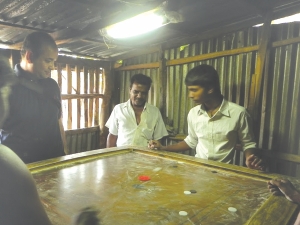 The cost of solar units in urban locations will be even cheaper if we promote a 'net meter' by which SHSs can be used to produce and sell electricity to the power distribution companies in the cities using our rooftops. Rough calculations would show that there is opportunity in Dhaka city alone to produce nearly 600MW of electricity if we ensure that all dwellers produce 10-20% of their power consumptions using solar systems. However, instead of consuming at home they should supply it to the grid so that the need for batteries is reduced, in turn reducing the cost by at least 50% or more. Alternatively, government could think of reverse incentives scheme through a discriminatory pricing of electricity in urban areas. This means that houses who produce and sell electricity at least 10% of their consumed power needs to the distribution companies will continue to pay same price per unit of power while who does not will have to pay 50-100 greater price for a unit of electricity. There are various policy options that can be considered to make this a reality. Ironically, producing electricity through diesel costs very little (compared to solar energy) and so we are using diesel powered generators in the cities and polluting the air. This fact alone should make us respect our rural people more, who pay so much more for power. The cost of solar units in urban locations will be even cheaper if we promote a 'net meter' by which SHSs can be used to produce and sell electricity to the power distribution companies in the cities using our rooftops. Rough calculations would show that there is opportunity in Dhaka city alone to produce nearly 600MW of electricity if we ensure that all dwellers produce 10-20% of their power consumptions using solar systems. However, instead of consuming at home they should supply it to the grid so that the need for batteries is reduced, in turn reducing the cost by at least 50% or more. Alternatively, government could think of reverse incentives scheme through a discriminatory pricing of electricity in urban areas. This means that houses who produce and sell electricity at least 10% of their consumed power needs to the distribution companies will continue to pay same price per unit of power while who does not will have to pay 50-100 greater price for a unit of electricity. There are various policy options that can be considered to make this a reality. Ironically, producing electricity through diesel costs very little (compared to solar energy) and so we are using diesel powered generators in the cities and polluting the air. This fact alone should make us respect our rural people more, who pay so much more for power.
Dr. Haque is Professor of Economics at United International University
Cover Art by Ujjal Ghose
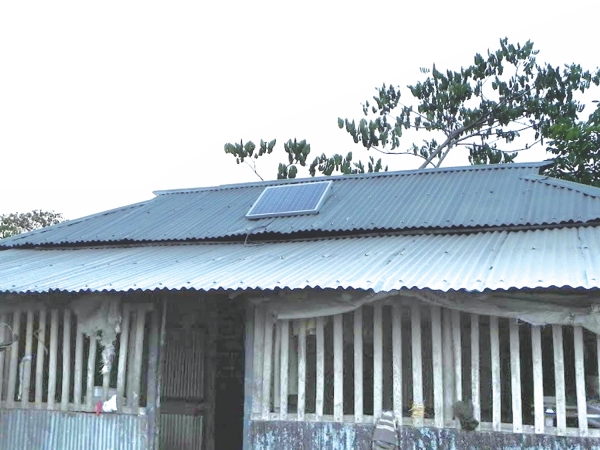
Copyright
(R) thedailystar.net 2012 |
